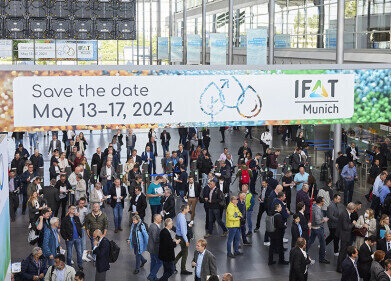Waste Management
Energy for the circular economy: how policy could prevent 60 million tonnes of waste going to landfill
Jun 11 2018
LONDON, 06 June 2018: The Environmental Services Association (ESA), the voice for the UK’s resource and waste management industry, has launched its latest report, an overview of the contribution that Energy from Waste (EfW) makes to the UK economy, which demonstrates how simple policy interventions could boost resource productivity and support the diversion of up to 60m tonnes of waste from landfill over the next 10 years, powering the equivalent of all the homes in Birmingham, whilst saving 12m tonnes of COâ‚‚e.
With the right Government support ESA estimates that up to £10bn of private sector capital will be unleashed across the recycling and resource management sector, delivering 50,000 jobs, boosting GDP by £3bn each year and contributing to economic growth.
Jacob Hayler, ESA’s Executive Director, said: “Government must support us in unlocking domestic infrastructure investment in EfW by creating a coherent, stable policy environment for recycling and resource management, focusing on the material that simply cannot be recycled, that recognises our sector’s positive role in delivering even greater benefits to the economy, whilst supporting and delivering the UK’s recycling ambitions.”
“Our sector, in cost-effective partnerships with local authorities, is already successfully generating clean, low-carbon energy from non-recyclable waste at world-class facilities across the UK, and its contribution could be even greater.”
In 2016, ESA’s members, which represent 97% of the UK’s current EfW capacity, diverted 9.6Mt of waste from landfill to EfW and produced 5TWh of low-carbon electricity, enough to power 1.6m homes, as well as 730GWh of heat to district heating networks and industrial users.
ESA’s report, Energy for the Circular Economy: an overview of Energy from Waste in the UK, makes three recommendations that will enable the UK to become a world leader in resource productivity and efficiency:
POLICY: Develop an ambitious and robust Resources & Waste Strategy and establish a plan for high quality recycling
The forthcoming Resources & Waste Strategy must not only set long-term ambition levels for greater resource productivity, it must put in place comprehensive policies to deliver the outcomes it wants to see; including a clear plan for waste reduction and recycling that will improve the quality of recycled material and stimulate demand. Last week ESA highlighted on Radio 4’s You and Yours programme that local councils will need to make changes to collection services and manufacturers will need to use recycled content in their products if we are to hit the Circular Economy Package targets.
SOLUTIONS: Address the residual waste capacity gap and provide long-term regulatory certainty
Once waste reduction and recycling priorities have been set in the forthcoming Resources & Waste Strategy, the Government should work with industry to assess how much extra residual waste treatment capacity is needed and to enable its delivery. Delivery should not be undermined by sudden changes to taxes and subsidies, or by changes in policy and targets, and any such changes should be signalled well in advance.
ENABLERS: Enable CHP plants to help address the energy gap and ensure the planning and permitting regime does not unfairly disadvantage EfW
A heat sector plan should be developed and Local Authorities should strengthen sustainability criteria in their local plans, for example with low-carbon heat targets, to encourage greater use of combined heat and power. The Government should also enforce the determination period in the local planning process to ensure projects can be delivered on time and for the best value, whilst permits issued by the regulator should be fit for purpose and enforced.
By addressing these three areas, we can seize the opportunity of making the most out of the UK’s resources.
Events
May 05 2024 Seville, Spain
May 13 2024 Munich, Germany
May 23 2024 Beijing, China
May 23 2024 Beijing, China
Jun 10 2024 Algiers, Algeria













